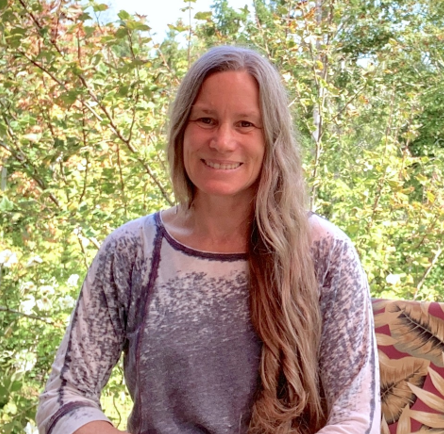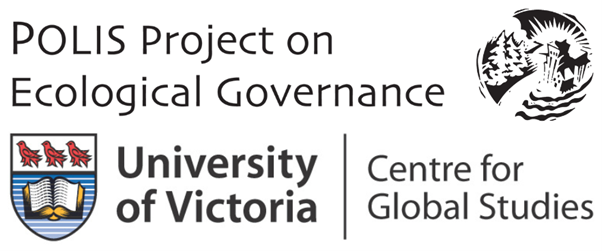People-Plant Interrelationships and the Law – Ethnobiology and Biocultural Ethics
Abstract
“Variety is the spice of life” is a well known phrase that can be traced back to a poem called The Task published in 1785 by William Cowper. Little did Cowper know that he was onto something bigger than just pleasure! A couple of centuries later, scientists tell us that variety – in the form of biological diversity or ‘the variety of life on earth in all its forms and interactions’ – is essential for the very continuance of humankind. We also know from interdisciplinary fields such as ethnobiology that cultural diversity and linguistic diversity (specifically Indigenous cultures and languages) are inextricably linked with the world’s biological diversity – and that all are facing imminent risk amid the complex social-and ecological crises of our time.
Recognizing the vital role that diversity has in our future on earth necessarily invites complexities into conversations about entanglements of “people, plants and the law.” For example, how might the conversation diversify by adding an “s” to “law” and to “people,” intentionally considering Indigenous laws and laws of Nature alongside colonial law? And what of the entanglements between law and ethics, given in some legal traditions there is no distinction? The conversation might shift, in ways that are messy, difficult, inconvenient – but perhaps also interesting and productive?
This presentation offers a conversation-widening perspective on plants, peoples and laws based in biocultural diversity research and ethics policy development in Canada, drawing from recent spicy decades in ethnobiology and related fields seeking to collaborate across Western and Indigenous systems of knowledge, laws and ethics.
About the speaker
 Kelly Bannister is Co-Director of the POLIS Project on Ecological Governance at the Centre for Global Studies (University of Victoria, B.C. Canada), an instructor with the Institute for Zen Leadership (Wisconsin, USA) and an independent consultant. She has a Ph.D. in Botany (Ethnobotany and Phytochemistry) and did postdoctoral studies in applied ethics. Her lifelong interest in the ethics of biocultural research was seeded during her doctoral studies in the mid-late 1990s, which was the ‘peak’ of biodiversity prospecting based on Indigenous knowledge, amid intense global controversy over appropriation of Indigenous knowledge and protection of Indigenous intellectual property and biocultural heritage rights. She has been involved in ethics policy development locally, nationally and internationally ever since, examining the role of voluntary and soft law instruments (e.g., ethical codes, community protocols, research agreements, consent arrangements) to address power relations and facilitate equitable practices in collaborative research involving Indigenous knowledge. Kelly is devoted to understanding if and how we can work well across diverse worldviews, wisdom traditions, legal orders and knowledge systems to address the pressing social, cultural and ecological issues and inequities of our time. Her current work in biocultural ethics and embodied ethical praxis is informed by Indigenous and relational ethics, as well as conflict resolution, intercultural communication, somatic movement, martial arts and Zen. Beyond her intrigue with people-plant interrelationships, she is deeply interested in what influences and governs how we treat one another and the natural world, across cultures, species and generations.
Kelly Bannister is Co-Director of the POLIS Project on Ecological Governance at the Centre for Global Studies (University of Victoria, B.C. Canada), an instructor with the Institute for Zen Leadership (Wisconsin, USA) and an independent consultant. She has a Ph.D. in Botany (Ethnobotany and Phytochemistry) and did postdoctoral studies in applied ethics. Her lifelong interest in the ethics of biocultural research was seeded during her doctoral studies in the mid-late 1990s, which was the ‘peak’ of biodiversity prospecting based on Indigenous knowledge, amid intense global controversy over appropriation of Indigenous knowledge and protection of Indigenous intellectual property and biocultural heritage rights. She has been involved in ethics policy development locally, nationally and internationally ever since, examining the role of voluntary and soft law instruments (e.g., ethical codes, community protocols, research agreements, consent arrangements) to address power relations and facilitate equitable practices in collaborative research involving Indigenous knowledge. Kelly is devoted to understanding if and how we can work well across diverse worldviews, wisdom traditions, legal orders and knowledge systems to address the pressing social, cultural and ecological issues and inequities of our time. Her current work in biocultural ethics and embodied ethical praxis is informed by Indigenous and relational ethics, as well as conflict resolution, intercultural communication, somatic movement, martial arts and Zen. Beyond her intrigue with people-plant interrelationships, she is deeply interested in what influences and governs how we treat one another and the natural world, across cultures, species and generations.

About People, Plants and the Law Online Lecture Series
The People, Plants, and the Law lecture series explores the legal and lively entanglements of human and botanical worlds.
Today people engage with and relate to plants in diverse and sometimes divergent ways. Seeds—and the plants that they produce—may be receptacles of memory, sacred forms of sustenance, or sites of resistance in struggles over food sovereignty. Simultaneously, they may be repositories of gene sequences, Indigenous knowledge, bulk commodities, or key components of economic development projects and food security programs.
This lecture series explores the special role of the law in shaping these different engagements, whether in farmers’ fields, scientific laboratories, international markets, or elsewhere.
Note that all dates and times displayed are in Australian Eastern Standard Time (AEST).



